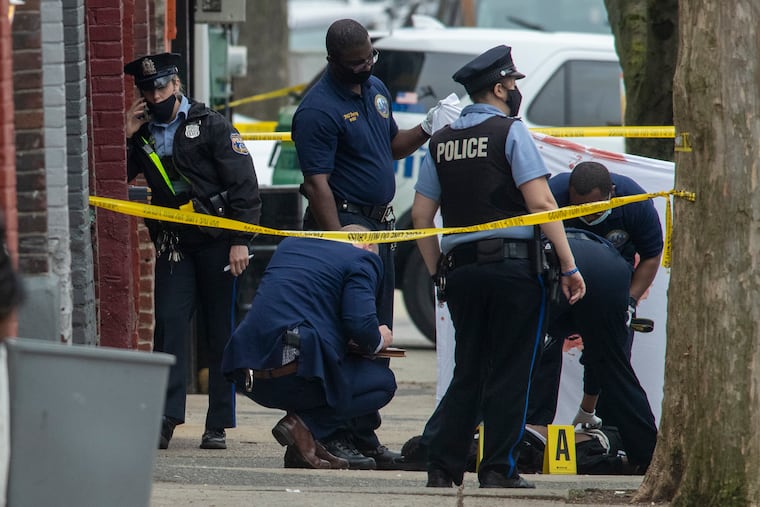The reality of Philadelphia’s gun-violence epidemic crashes a virtual hearing | Helen Ubiñas
Philadelphia's bloody reality, experienced in real time, serves as a stark reminder of what's at stake as shootings and homicides soar.

The virtual gun-violence hearing was about 20 minutes to the five-hour mark by the time John Solomon spoke.
The 28-year-old was scheduled to go on even later but asked organizers offline if he could interrupt; there was an emergency and he needed to go.
After a brief introduction by Councilmember Kenyatta Johnson, who leads City Council’s special committee on preventing gun violence, Solomon appeared on screen. His camera was pointed toward his mouth, which made the rush of words that followed sound even more hurried.
He quickly summed up the goals of his fledgling violence-prevention program, Endangered Kind, which I wrote about in March: to reach young people teetering on the brink, if not already over it. Young people who reminded him of himself, 11 the first time he held a gun, 15 when he was shot, 18 when he went to prison for shooting someone.
And then barely catching his breath, Solomon added:
“I wanted to interrupt because I actually just got some news, and I didn’t want to, umm, I didn’t want to sign off without letting the people that’s on here know how real gun violence is. My brother …” He paused for a moment before continuing. “My brother just got shot … and just to get that news while we’re on this phone call, I didn’t really want to interrupt, but I just wanted to let y’all know that this issue is real.”
How he managed to keep his composure, and have the presence of mind and character to stay on the call even for those two minutes, is testament to the urgency he and others have been trying to instill into the latest efforts against gun violence as shootings and homicides soar.
But no one saw this coming.
“It was a grim reminder” of the epidemic plaguing the city, said Johnson, adding that he was taken aback by Solomon’s announcement.
Everyone left on the call seemed to feel the same way.
Survivors of gun violence and loved ones of shooting and homicide victims are often called to speak at gatherings like Tuesday’s hearing, but it’s never long before even the most compelling testimony gets overshadowed by the minutiae of bureaucratic empty promises.
And yet here was a young man experiencing the reality in real time, and it was impossible to look away.
This wasn’t a stat, or a slick presentation full of slides, or even an after-the-fact heart-wrenching story of loss, at least Solomon hoped. He wouldn’t know until he got off the call and rushed to Temple University Hospital, where he learned that his older brother, who was shot in the back, would recover.
When I talked to Solomon later, he said he thought about quietly leaving the call so he wouldn’t distract from the conversation.
“But then I thought that this spoke volumes to why we were all there, and how close any of us are to getting the phone call I got.”
It was the kind of reality check that was missing at the city’s second biweekly gun-violence briefing, long on slides and short on concrete plans.
I swear I’d like to applaud the city for now offering a platform that has the potential to be accessible and transparent. But once again on Wednesday there wasn’t an opportunity for the public to ask any questions. These are meant to be regular briefings, so maybe next time? But taking a question or three from the public is key or these briefings are neither transparent nor accessible nor useful to residents who are a phone call away from this city’s bloody reality.
Solomon and I talked about the rising frustration among many in Philadelphia over the talk that passes for action these days. Mine included. But he reminded me that throwing our hands up in disgust is just not an option.
Solomon and others in the city have lost too much already, and the shooting of Solomon’s brother — one of at least eight people shot that day — is a reminder that they stand to lose even more.
“There’s a lot of people out here that are hopeless, I know that,” Solomon said. “But I can’t join that crowd.”